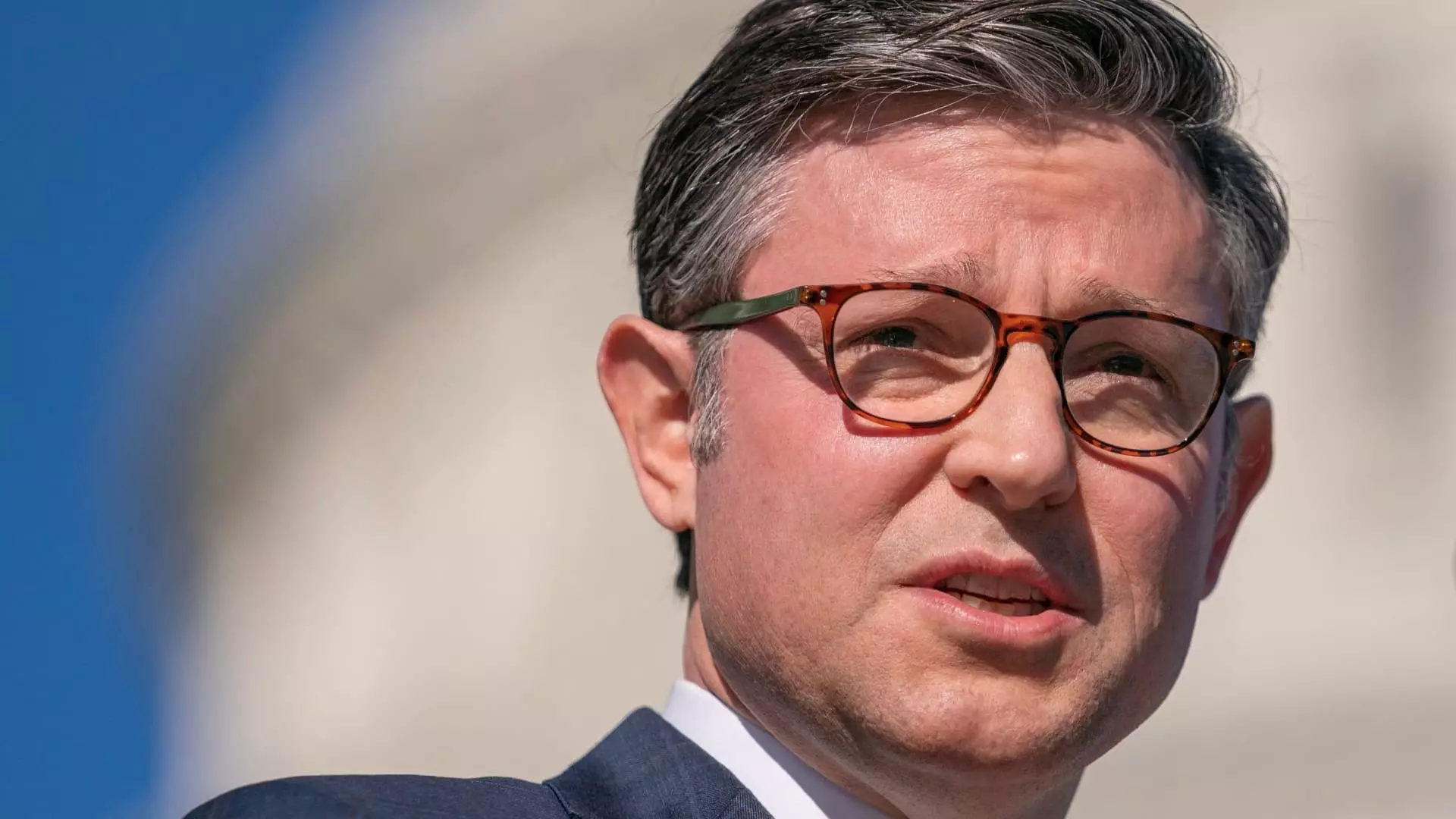The recent developments surrounding Rep. Matt Gaetz raise crucial questions about accountability and transparency within Congress. Initially investigated by the House Ethics Committee for allegations including sexual misconduct and illicit drug use, Gaetz’s situation escalated as he abruptly resigned from Congress just days before a committee vote on an investigatory report. This resignation effectively nullified the probe, as the committee’s authority is confined to members of the House. House Speaker Mike Johnson’s comments about the probe being a “Pandora’s box” exemplify the growing concerns among lawmakers regarding the use of congressional resources to investigate private citizens.
Despite the House Ethics Committee’s comprehensive investigatory process, Johnson argued for the report’s confidentiality, suggesting that its rough draft status and Gaetz’s departure from Congress render its release inappropriate. The subtext of such statements seems to indicate a desire to protect the reputation of the party and its members, particularly in light of Gaetz’s potential nomination as U.S. attorney general by then-President-elect Donald Trump. This raises significant ethical questions: Should Congress be allowed to bury reports that could potentially inform the Senate’s vetting process for high-profile nominees?
The call for transparency is echoed by some lawmakers, like Senator Markwayne Mullin, who believes the Ethics Committee report should indeed be unveiled. Mullin makes a valid point regarding the Senate’s obligation to conduct a rigorous review and to provide advice and consent for nominees. The principles of accountability and openness require that the Senate has all pertinent information about individuals they are considering for key governmental roles. The public perception of political integrity is paramount; thus, withholding information that could reflect a nominee’s fitness for office could lead to grave consequences for the institution itself.
Despite Gaetz’s previous denials of all allegations against him, the gravity of the accusations, particularly those claiming he engaged in sexual activities with a minor, cannot be overlooked. The implications of such claims are severe, and they reflect on both Gaetz and the integrity of the nominations process. As questions arise regarding his ability to lead the Department of Justice, the need for a thorough, substantiated vetting process becomes undeniably clear. This is particularly pertinent given that the Department of Justice would be responsible for federal investigations into such serious offenses.
Gaetz’s history, including past federal investigations concerning alleged involvement in sex trafficking, inevitably complicates his prospects for confirmation. Although investigations did not lead to formal charges, the fact that he stands at the center of such a well-publicized controversy raises eyebrows. Unsurprisingly, it prompts reactions from both sides of the aisle, illuminating the politicization of personal misconduct allegations. On one hand, it showcases the idea that political rivals may weaponize such information to influence outcomes in their favor. On the other hand, it catalyzes an essential discourse on ethical standards expected from those in power.
Johnson’s remarks regarding the appropriateness of continuing investigations into private individuals highlight a critical paradox within the political system. As representatives, lawmakers are continually tasked with upholding ethical standards for themselves and their peers. However, there seems to be considerable conflict when those standards are juxtaposed against party solidarity and political maneuvering. The tension lies in balancing party loyalty against the moral imperative to address wrongdoing, especially when public service and national trust are at stake.
Looking forward, the implications of Gaetz’s case for future nominations and ethical scrutiny are profound. The ongoing discussions surrounding the release of the Ethics Committee’s report signal a broader concern: how should Congress navigate allegations of misconduct, and what processes should be in place to ensure transparency and accountability while also preserving the integrity of its members? The resulting actions, or inaction, will undoubtedly have lasting reverberations throughout the legislative framework.
Ultimately, the actions taken (or not taken) regarding the investigation and disclosures will set precedents for the expectations of conduct in governance. As lawmakers evaluate their course of action, it is essential to remember the principles of integrity, transparency, and accountability as they relate to public trust and the efficacy of democracy itself. The ongoing Gaetz saga serves as a grim reminder of the tangled web of politics, ethics, and the public’s right to know.



Leave a Reply